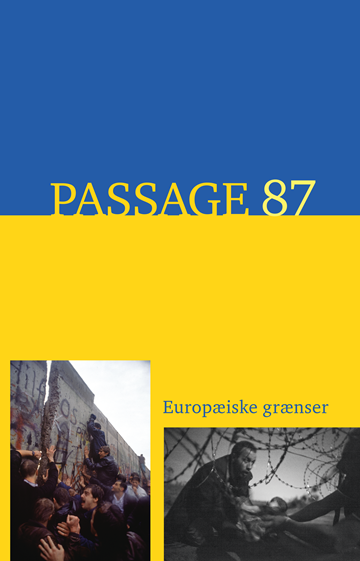Europæiske grænser (ud)foldet
Ydre og indre grænser i Julya Rabinowichs Spaltkopf
DOI:
https://doi.org/10.7146/pas.v37i87.133262Nøgleord:
European borders, europæiske grænser, border poetics, internal borders, internationale grænser, migrant identity, migrantidentitet, migration literature, migrationslitteratur, passageResumé
Many border-crossings take an extended form where it seems that travelers and mi- grants crossing a national border have not really crossed the border at all. It is as if they have taken the border with them and still exist in bubble-like extension of the territory they come from. They visit or live in another country, but are bordered off from their surroundings by the symbolic boundaries of culture and language, a border which can follow the topographical contours of a diasporic or touristic community or their own bodies. Or they live on these borders they have nominally crossed, in hybrid cultures and ambivalent spaces: they have both crossed and not crossed the border. In both cases, the external border has moved into the territory and become an internal border, either to the territory or the border-crosser’s self. The (il)logic of ext/internal borders may also apply to larger territories. But mul- tinational continental spaces pose their own challenges, since the folding of exter- nal territorial borders onto internal spaces through travel and migration overlays a space which is already divided into nations and, in the European case, the divides between “real Europes” and “other Europes”. The location of the outer border of Europe is unsure: It may only be an outer border in one conception of Europe, and at the same time be an inner European border in another conception of Europe. In this article, I use border poetics to analyze how memories of in/external borders on both national and continental scales are publicly negotiated in the novel Spaltkopf (2008) by Julya Rabinowich, a coming-of-age narrative whose protagonist migrates from Russia to Vienna as a child.
Downloads
Publiceret
Citation/Eksport
Nummer
Sektion
Licens
Forfattere, der publicerer deres værker via dette tidsskrift, accepterer følgende vilkår:
- Forfattere bevarer deres ophavsret og giver tidsskriftet ret til første publicering, samtidigt med at værket efter publiceringen er omfattet af en Creative Commons Attribution-licens, der giver andre ret til at dele værket med en anerkendelse af værkets forfatter og første publicering i nærværende tidsskrift.
- Forfattere kan indgå flere separate kontraktlige aftaler om ikke-eksklusiv distribution af tidsskriftets publicerede version af værket (f.eks. sende det til et institutionslager eller udgive det i en bog), med en anerkendelse af værkets første publicering i nærværende tidsskrift.
- Forfattere har ret til og opfordres til at publicere deres værker online (f.eks. i institutionslagre eller på deres websted) forud for og under manuskriptprocessen, da dette kan føre til produktive udvekslinger, samt tidligere og større citater fra publicerede værker (se The Effect of Open Access).





